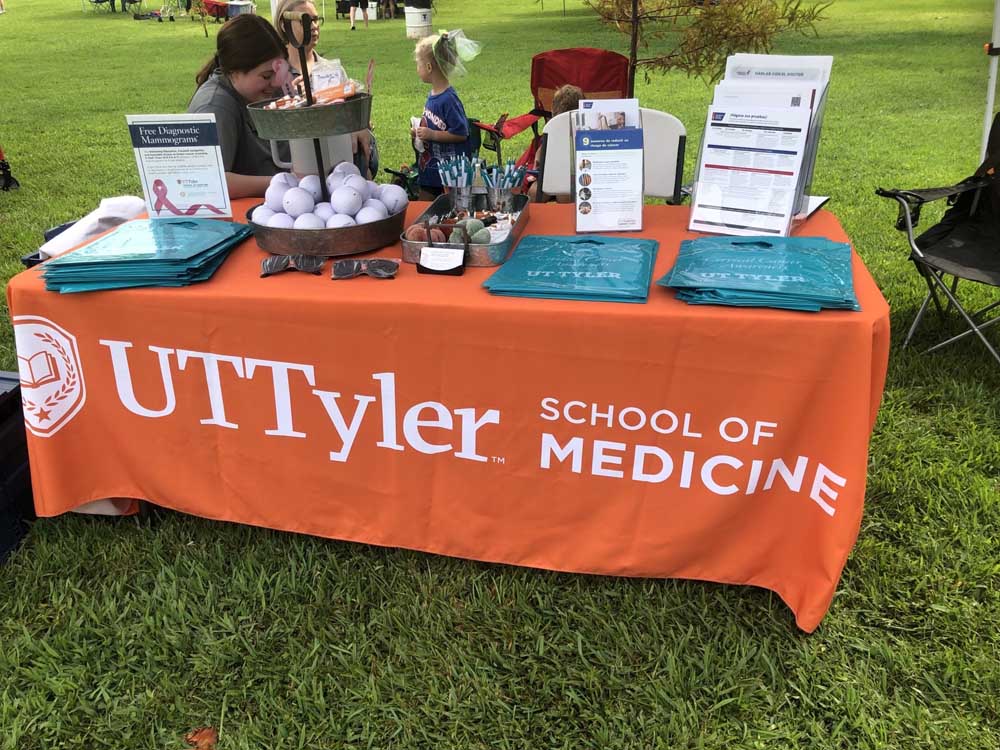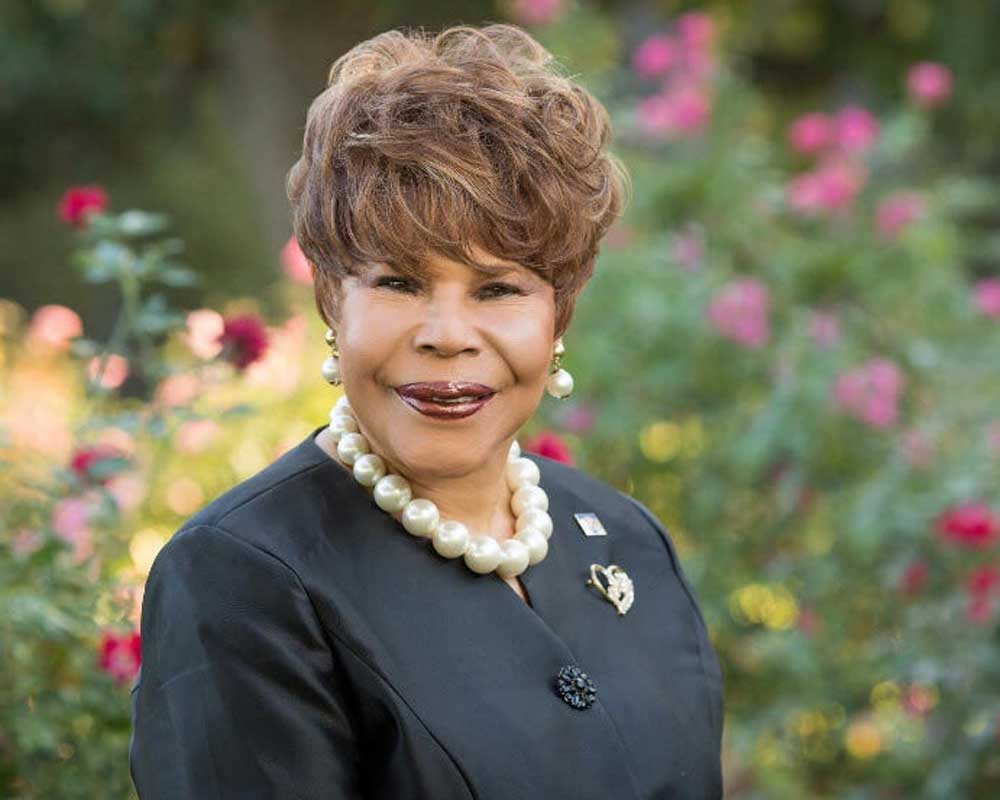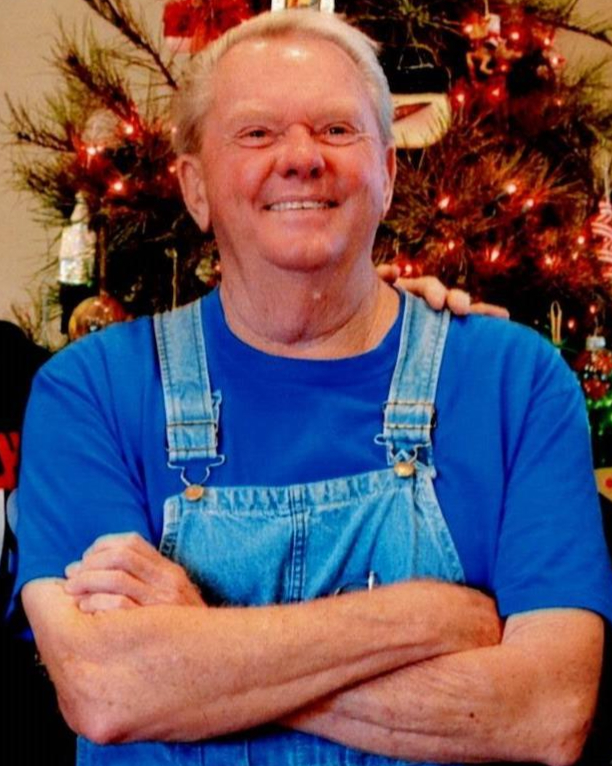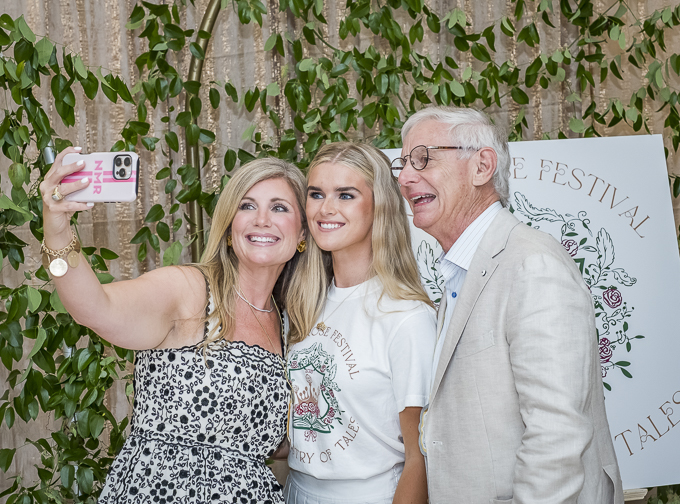Grant to help low-income, uninsured women in East Texas get screened for breast cancer
Published 5:35 am Sunday, October 8, 2023

- UT Tyler’s School of Medicine speaks with community members about free mammograms and breast cancer screenings.
Editor’s Note: This story was featured in the Tyler Morning Telegraph’s annual Breast Cancer Awareness special section on Oct. 6. View the e-edition here.
UT Tyler has received a $1 million grant that is the first of its kind in East Texas. The grant encompasses seven counties to target rural East Texas women to educate on the importance of breast cancer screenings and help cover the costs of an eligible woman’s annual mammogram.
Trending
The study started in September 2022 and will be conducted for three years ending in 2025. The goal of the study is to expand access to those who are uninsured and low-income and bring awareness about breast cancer.
“We educate the public about the importance of early diagnosis, early detection of breast cancer,” said grant principal investigator Yordi Tiruneh. “Breast cancer is manageable if we can catch it early in the process.”
Grant education coordinator Sarah Phillips said recent trends show more access is needed for this type of women’s healthcare.
“We have noticed a trend that since COVID-19, mammograms rates have been on the decline and we also understand that those in rural areas have lack of access and other socioeconomic issues,” Phillips said.
In the course of three years, UT wants to screen 1,200 women between the ages of 40-75 in the seven counties in East Texas. They will schedule mammograms for those willing to participate in the study. Through UT Health, they have access to their bus which they can use for transportation needs. In addition, they have a Mobile Health Unit that goes where services are offered. If the woman gets an abnormal screening, they pay for that as well.
There are seven counties part of this study: Henderson, Anderson, Gregg, Rusk, Smith, Van Zandt and Cherokee. As part of the study, they go to health fairs, libraries, laundromats, urgent care, grocery stores, gas stations and churches, to meet people where they are and educate them.
Trending
“It is us going into these counties in rural spots and just making our presence known,” Phillips said. “Just so they feel comfortable and they know that there’s someone that can call and talk to.”
Breast cancer is the second most common cancer after skin cancer. The median age for breast cancer is 62, however they are seeing more younger women under 45 get breast cancer. Black women have a lower median age and suffer higher fatalities from breast cancer, according to Tiruneh.
“Unfortunately, it’s the same population who is presenting this late diagnosis because of so many social determinants of not having access to healthcare,” Tiruneh said.
When going into the community Phillips and grant education coordinator LaRhonda Brooks answer questions, from ‘will this hurt’ to ‘how long will this take once I get there?’ The questions fall into two categories: awareness and access to child care, Tiruneh said. Since they are targeting low-income people and those without insurance, common questions include who will take care of their children or how they can do this without a doctor, Tiruneh said.
“We just try to make sure that the patients are aware of the importance of getting mammograms scheduled and just reach out to the community to try to let them know and inform the patients that services are free,” Brooks said.






